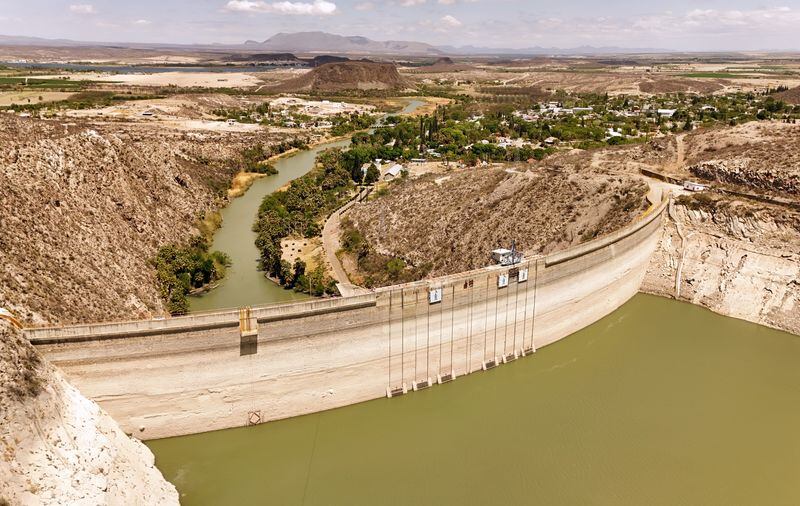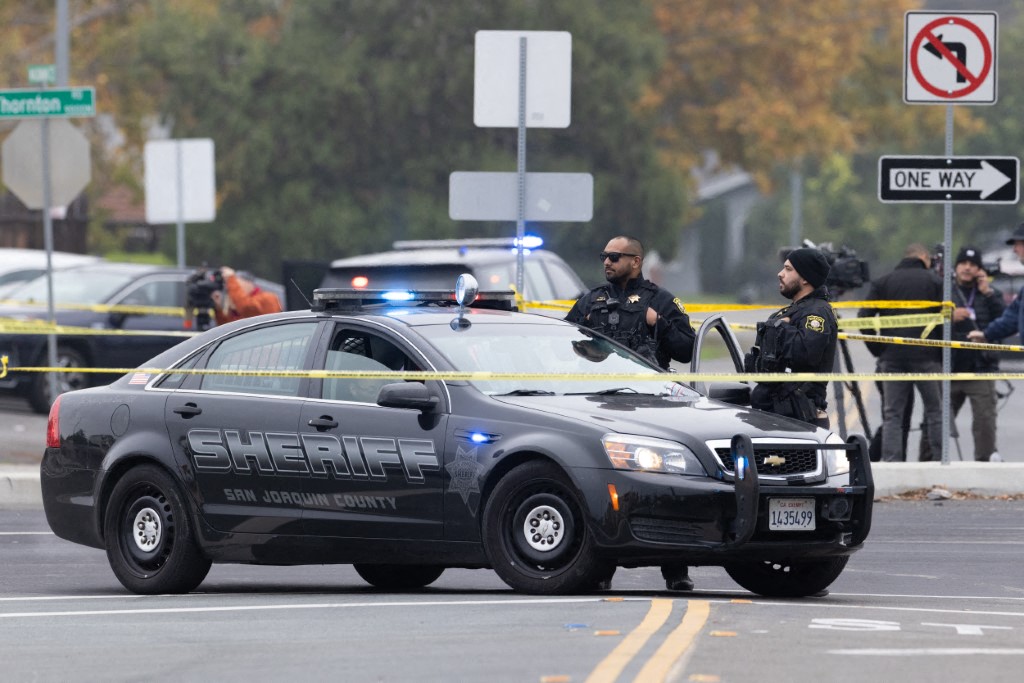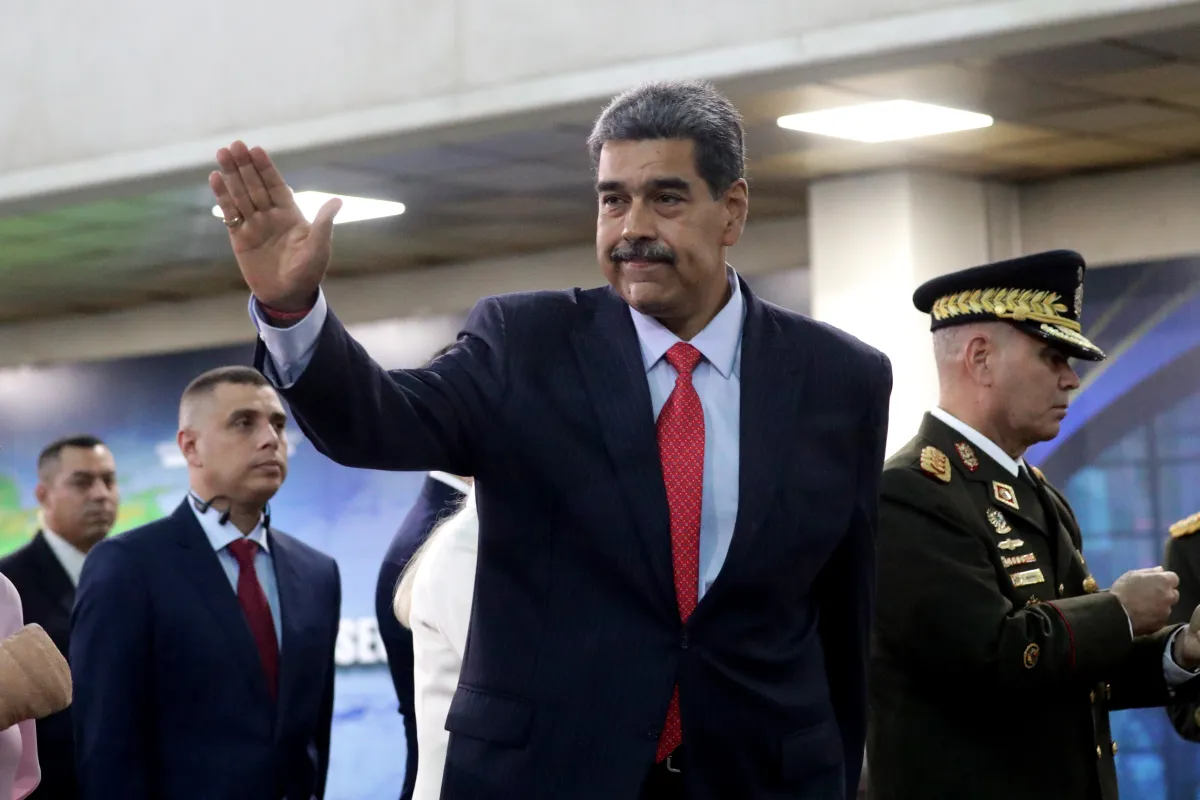International
US judge tosses order hospital treat Covid patient with ivermectin

AFP
A judge in the US state of Ohio has said a hospital cannot be forced to administer an unproven treatment to a patient with Covid-19, reversing the ruling of another court.
Judge Gregory Howard had ordered West Chester Hospital to administer the antiparasitic drug ivermectin to Jeff Smith, as prescribed by his physician, for 14 days.
Smith’s wife, Julie, had filed suit to force the hospital located outside Cincinnati to begin giving ivermectin to her 51-year-old husband, who has been on a ventilator since August 1.
Judge Michael Oster reversed Howard’s order on Monday.
While “everyone involved wants Jeff Smith to get better,” Oster said, the medical community at large does not advocate the use of ivermectin to treat Covid-19.
“No strong evidence by way of study or data analysis can, at this time, show that ivermectin should be recommended for Covid-19 treatment,” Oster said. “Based on the current evidence, ivermectin is not effective as a treatment for Covid-19.”
UC Health, which runs the West Chester Hospital, welcomed the judge’s ruling.
“We respect the expertise of our clinicians and appreciate the scientific rigor used to develop treatments, medications and other therapies,” UC Health said.
“We do not believe that hospitals or clinicians should be ordered to administer medications and/or therapies, especially unproven medications and/or therapies, against medical advice.”
The case is one of several nationwide where courts have sided with litigants seeking to use ivermectin, despite scant evidence of its effectiveness against Covid and a rise in calls to poison centers as a result of misuse.
Since the start of the Covid pandemic, there has been considerable interest in repurposing existing medications.
Ivermectin attracted much attention, particularly in Latin America, and early lab studies suggested it might have beneficial properties for fighting the coronavirus.
But, as is often the case, promise in lab settings has so far failed to translate to real world success, as judged by its lack of clear efficacy in trials.
The National Institutes of Health says there is not enough evidence “either for or against the use of ivermectin for the treatment of Covid-19” until clear results become available from rigorous trials.
Ivermectin is approved by the Food and Drug Administration to treat people with certain conditions caused by parasitic worms, but the agency has warned people against using it for Covid.
A report by the Centers for Disease Control and Prevention showed that by mid-August, physicians were writing out more than 88,000 prescriptions of the drug per week — well above the pre-pandemic baseline of 3,600.
Poison control centers have seen a three-fold increase in the number of calls for ivermectin overdoses.
Ivermectin’s popularity against Covid has drawn comparisons to hydroxychloroquine, an anti-malarial drug that was particularly favored by conservatives last year, despite no strong evidence of real world efficacy.
International
U.S. and Mexico Reach Deal to Address Water Deficit Under 1944 Treaty

The United States and Mexico have reached an agreement to comply with current water obligations affecting U.S. farmers and ranchers and for Mexico to cover its water deficit to Texas under the 1944 Water Treaty, the U.S. Department of Agriculture said in a statement.
The department уточified that the agreement applies to both the current cycle and the water deficit from the previous cycle.
On Monday, U.S. President Donald Trump accused Mexico of failing to comply with the water-sharing treaty between the two countries, which requires the United States to deliver 1.85 billion cubic meters of water from the Colorado River, while Mexico must supply 432 million cubic meters from the Rio Grande.
Mexico is behind on its commitments. According to Washington, the country has accumulated a deficit of more than one billion cubic meters of water over the past five years.
“This violation is severely harming our beautiful crops and our livestock in Texas,” Trump wrote on Monday.
The Department of Agriculture said on Friday that Mexico had agreed to supply 250 million cubic meters of water starting next week and to work toward closing the shortfall.
Agriculture Secretary Brooke Rollins, quoted in the statement, said Mexico delivered more water in a single year than it had over the previous four years combined.
Trump has said that if Mexico continues to fall short of its obligations, the United States reserves the right to impose 5% tariffs on imported Mexican products.
Mexico’s Deputy Foreign Minister for North America, Roberto Velasco, said that a severe drought in 2022 and 2023prevented the country from meeting its commitments.
International
Several people shot in attack on Brown University campus

Several people were shot on Saturday in an attack on the campus of Brown University, in the northeastern United States, local police reported.
“Shelter in place and avoid the area until further notice,” the Providence Police Department urged in a post on X. Brown University is located in Providence, the capital of the state of Rhode Island.
U.S. President Donald Trump said on his social media platform Truth Social that he had been briefed on the situation and that the FBI was on the scene.
At 5:52 p.m. local time (11:52 p.m. GMT), Brown University said the situation was still “ongoing” and instructed students to remain sheltered until further notice.
After initially stating that the suspect had been taken into custody, Trump later posted a second message clarifying that local police had walked back that information. “The suspect has NOT been apprehended,” the U.S. president said.
International
Colombia says it would not reject Maduro asylum request as regional tensions escalate

The Colombian government stated on Thursday that it would have no reason to reject a potential asylum request from Venezuelan President Nicolás Maduro should he leave office, as regional tensions persist over the deployment of U.S. military forces in the Caribbean since August.
“In the current climate of tension, negotiations are necessary, and if the United States demands a transition or political change, that is something to be assessed. If such a transition results in him (Maduro) needing to live elsewhere or seek protection, Colombia would have no reason to deny it,” said Colombian Foreign Minister Rosa Villavicencio in an interview with Caracol Radio.
However, Villavicencio noted that it is unlikely Maduro would choose Colombia as a refuge. “I believe he would opt for someplace more distant and calmer,” she added.
Colombian President Gustavo Petro also commented on Venezuela’s situation on Wednesday, arguing that the country needs a “democratic revolution” rather than “inefficient repression.” His remarks followed the recent detention and passport cancellation of Cardinal Baltazar Porras at the Caracas airport.
“The Maduro government must understand that responding to external aggression requires more than military preparations; it requires a democratic revolution. A country is defended with more democracy, not more inefficient repression,” Petro wrote on X (formerly Twitter), in a rare public criticism of the Venezuelan leader.
Petro also called for a general amnesty for political opponents and reiterated his call for forming a broad transitional government to address Venezuela’s prolonged crisis.
Since September, U.S. military forces have destroyed more than 20 vessels allegedly carrying drugs in Caribbean and Pacific waters near Venezuela and Colombia, resulting in over 80 deaths.
U.S. President Donald Trump has repeatedly warned that attacks “inside Venezuela” will begin “soon,” while Maduro has urged Venezuelans to prepare for what he describes as an impending external aggression.
-

 International4 days ago
International4 days agoWashington declares State of Emergency as atmospheric river brings severe flooding
-

 International4 days ago
International4 days agoU.S. to require five-year social media history from tourists under Visa Waiver Program
-

 International3 days ago
International3 days agoCuba battles out-of-control dengue and chikungunya epidemic as death toll rises to 44
-

 Central America3 days ago
Central America3 days agoHonduras election crisis deepens as CNE president denounces intimidation attempts
-

 Central America4 days ago
Central America4 days agoOAS and EU urge honduran political actors to respect vote results and avoid unrest
-

 International3 days ago
International3 days agoColombia says it would not reject Maduro asylum request as regional tensions escalate
-

 International2 days ago
International2 days agoSeveral people shot in attack on Brown University campus
-

 International3 days ago
International3 days agoEcuador on track for record violence as homicides hit highest level in Latin America again
-

 International4 days ago
International4 days agoSix ecuadorian soldiers jailed pending trial for alleged extrajudicial execution
-

 International2 days ago
International2 days agoU.S. and Mexico Reach Deal to Address Water Deficit Under 1944 Treaty
-

 Central America11 hours ago
Central America11 hours agoPanama seizes over three tons of drugs hidden in Caribbean port container


























